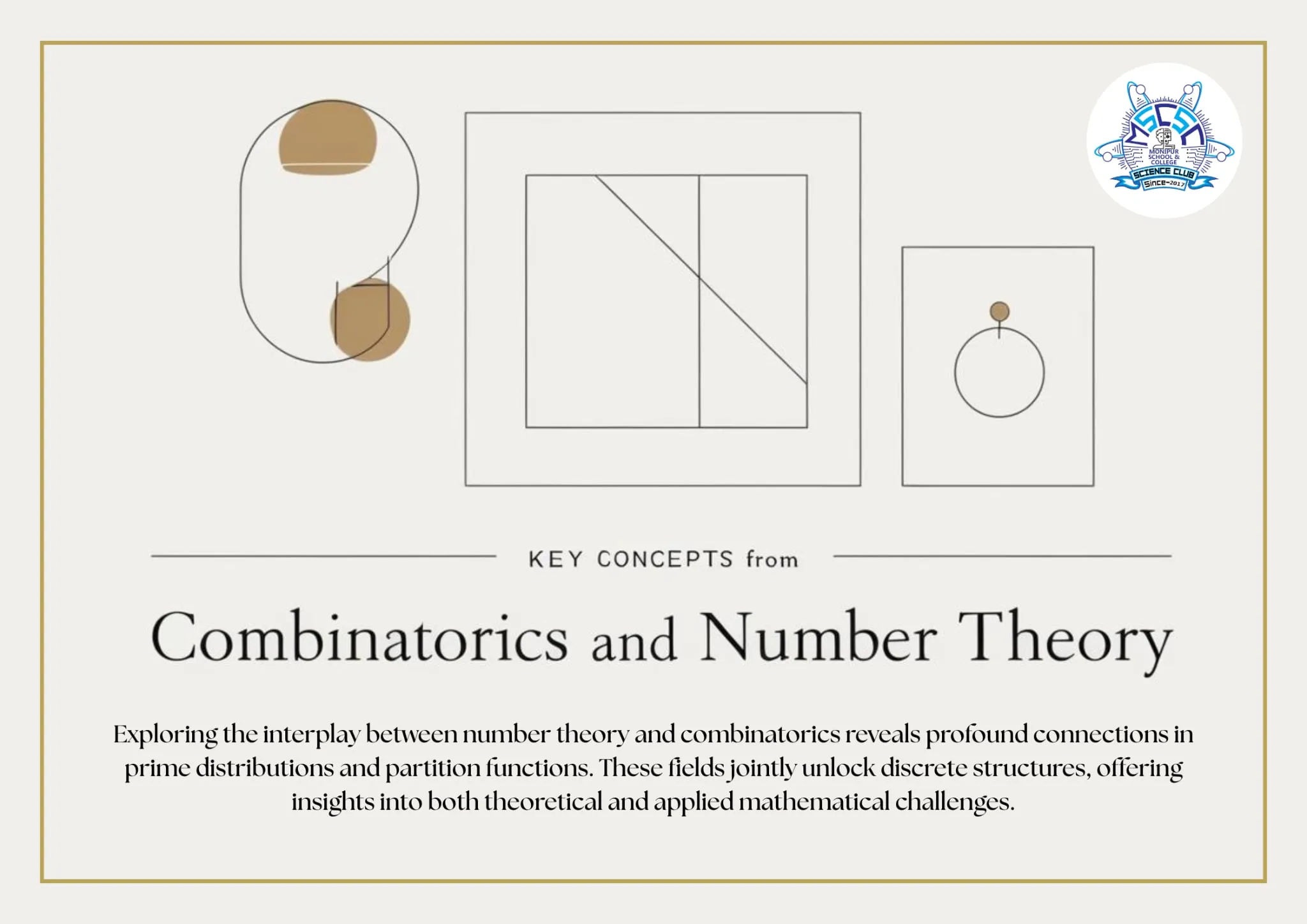
View full image
Combinatorics and Number Theory
Number theory and combinatorics help in many everyday tasks. Number theory is used in data encryption and error detection. Combinatorics helps create passwords, calculate chances in lotteries, and organize schedules. These maths topics make our lives easier and safer.
Applications of Number Theory and Combinatorics
Mathematics plays an important part in our lives, but we do not know. There are 2 very important branches of mathematics with a great many day-to-day applications in modern technology and problem-solving techniques. The two branches of mathematics are Number Theory and Combinatorics.
Number Theory Applications
Number theory is a branch of pure mathematics that deals with properties mainly of integers and arithmetic functions. The German mathematician Carl Friedrich Gauss (1777–1855) said, "Mathematics is the queen of the sciences—and number theory is the queen of mathematics." It also has a lot of applications in computer science, cryptography, and error detection.
1. Cryptography
One of the most important applications of number theory in the modern world is encryption; it keeps our data safe. Encryption is used by websites, the fintech industry, and messaging apps to protect information.
For example, RSA encryption relies on prime numbers. If we take two prime numbers, like 17 and 23. The two numbers multiplied by each other will be 391. We may easily multiply the numbers, but if we know only 391, it is very difficult to know the original numbers. This concept is the reason, why RSA encryption is safe.
2. Error Detection in Communication
When we send messages or data over the internet, there may be errors. Number theory is used for error correction and detection. A simple example is the usage of the checksum method in reading barcodes.
If a number in a barcode is 48752. We can add the digits to check if it is correct:
If this sum follows a certain rule (such as being a multiple of a fixed number), the barcode is valid. Otherwise, there is an error.
Applications of Combinatorics
Combinatorics is mathematics for counting objects and for putting objects in place. Combinatorics is used in computer science, probability, and arrangements.
1. Computer Algorithms and Passwords
Combinatorics helps in designing the algorithm for the computer and in creating passwords. If a password is 6 digits long (0-9), then there can be the following passwords:
If letters can also be included, then there are more choices and the passwords are secure.
2. Lottery and Probability
Combinatorics helps in computing probabilities for chance games. For example, in a lottery where one has to pick 6 numbers out of 66. The ways to pick these numbers are expressed through a formula named combinations:
For our case:
Winning the lottery is extremely challenging.
3. Scheduling and Arrangements
While developing timetables or scheduling events, combinatorics helps find the best arrangement of things. When 3 activities are to be utilized (A, B, C), they can be arranged in:
When more activities are utilized, the number of arrangements increases very quickly, helping in making decisions.
Number theory and combinatorics have several everyday uses, ranging from data protection to problem-solving in everyday life. From password encryption to error detection, or even planning events, these branches of mathematics are essential to modern life. Studying them can make us aware of how mathematics influences our lives.